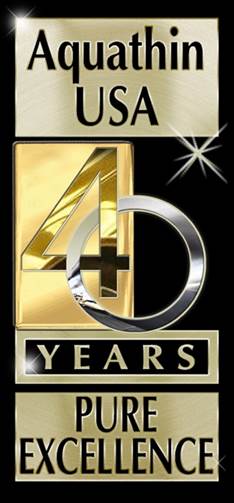Study: Few being prosecuted for water
"Aquathin OP-ED Commentary"
This quick read article demonstrates ongoing damages to our water due to bureaucratic delays. The actual damage is the result of lack of morals, ethics and concern for each other on this planet on the part of the industries who are willfully putting toxic matter into the air, water and soil. Look around, according to CNN this morning over half of us in the U.S. live within 10 miles of a severely polluted waterway. I love my Aquathin!
Study: Few being prosecuted for water pollution
WASHINGTON — Nearly one-third of major industrial facilities and government-operated sewage treatment plants significantly violated pollution discharge regulations during the past two years, but relatively few are being prosecuted, according to a study by the US Public Interest Research Group(PIRG).
The Washington Post reported that according to PIRG, 10 states — Texas, Ohio, New York, Indiana, Tennessee, North Carolina, Alabama, Louisiana, Michigan and Pennsylvania had the largest number of major facilities in "significant noncompliance" with discharge requirements during the 15-month period examined.
PIRG said lax enforcement of the Clean Water Act by the US Environmental Protection Agency (EPA) and state inspectors and lenient courts have fostered persistently high levels of illegal dumping of waste and toxic chemicals, according to the Post.
The study said many of these plants are far exceeding their legal limits for polluting rivers and streams with little concern for being prosecuted, according to the article. "At the most basic level, the government . . . has failed to properly pursue and punish polluters," the report said in the Post article. "Meanwhile, the courts have eroded citizens' ability to file suits in order to enforce the Clean Water Act."
The report, according to the article, is the latest in a series of sharp critiques of government enforcement policies by environmental activists and government watchdogs. According to the report, the number of pollution cases referred by EPA for criminal prosecution declined by 53 percent last year — a figure the agency disputes — while one out of every four facilities surveyed was operating on an expired pollution permit, the newspaper said.
The federal administration is considering a plan to reduce federal oversight of a key Clean Water Act anti-pollution program and instead "trust states" to clean up more than 20,000 dirty rivers, lakes and estuaries, according to the Post.
Joe Martyak, an EPA spokesman, said in the article that recent agency clean water cases "reflect a strong and vigorous enforcement effort for achieving compliance and deterring noncompliance." Using the Freedom of Information Act, the Post said, PIRG analyzed the behavior of industrial facilities, municipal treatment works and federal installations by reviewing violations between January 2000 and March 2001, as recorded in EPA's permit compliance system database. The review found that about 30 percent of the facilities were in serious violation of the Clean Water Act for at least a quarter of that period, according to the article. The study noted that while the Clean Water Act was premised on gradually achieving zero discharge of pollution, the EPA continues to allow industry to discharge large amounts of pollution into waterways under a permit system, the Post reported.
FOR THE BEST TASTE IN LIFE
Think Aquathin...AquathinK!!
Edited from Tech Bank 8/8/02


